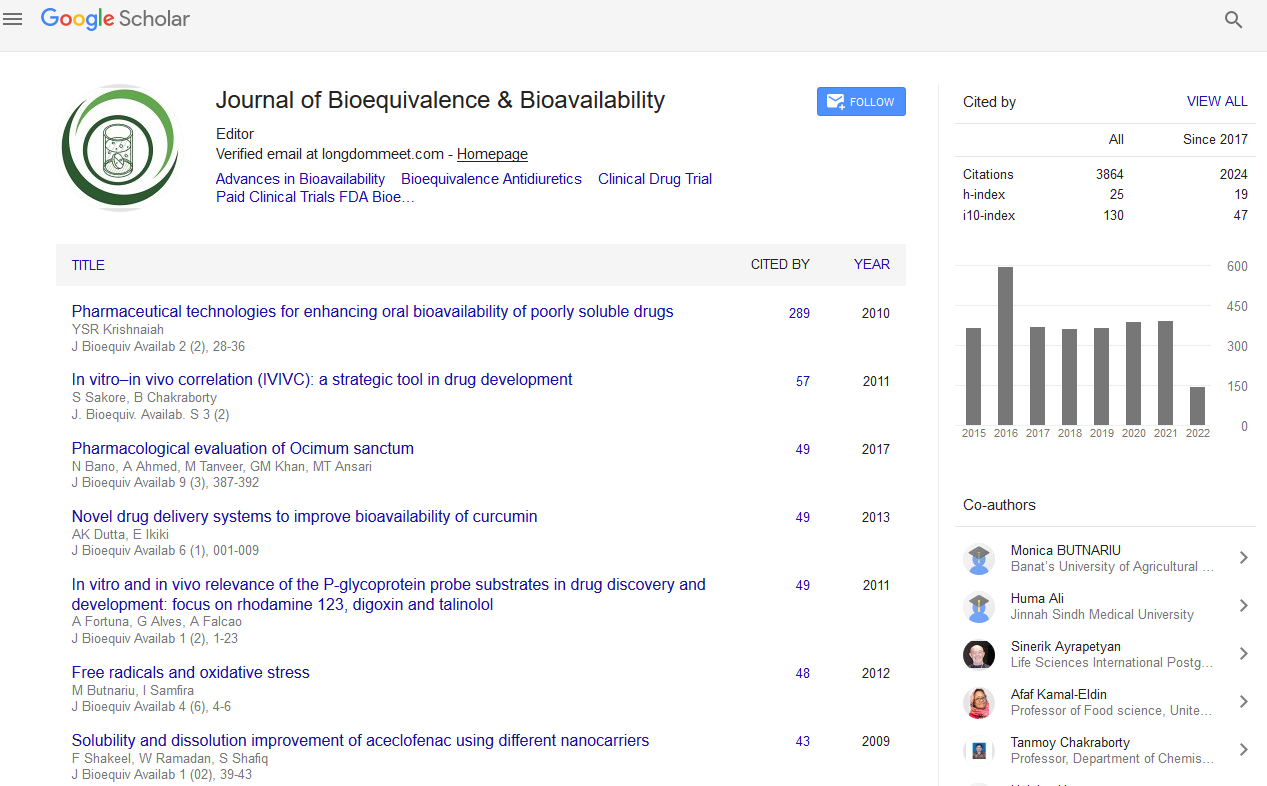PMC/PubMed Indexed Articles
Indexed In
- Academic Journals Database
- Open J Gate
- Genamics JournalSeek
- Academic Keys
- JournalTOCs
- China National Knowledge Infrastructure (CNKI)
- CiteFactor
- Scimago
- Ulrich's Periodicals Directory
- Electronic Journals Library
- RefSeek
- Hamdard University
- EBSCO A-Z
- OCLC- WorldCat
- SWB online catalog
- Virtual Library of Biology (vifabio)
- Publons
- MIAR
- University Grants Commission
- Geneva Foundation for Medical Education and Research
- Euro Pub
- Google Scholar
Useful Links
Share This Page
Journal Flyer

Open Access Journals
- Agri and Aquaculture
- Biochemistry
- Bioinformatics & Systems Biology
- Business & Management
- Chemistry
- Clinical Sciences
- Engineering
- Food & Nutrition
- General Science
- Genetics & Molecular Biology
- Immunology & Microbiology
- Medical Sciences
- Neuroscience & Psychology
- Nursing & Health Care
- Pharmaceutical Sciences
Developing suitable animal models for drug development
3rd World Congress Bioavailability & Bioequivalence
March 26-28, 2012 Marriott Hotel & Convention Centre, Hyderabad, India
Sharma S Prabhakar
Scientific Tracks Abstracts: J Bioequiv Availab
Abstract:
W hile the information derived from cell culture studies and other in vitro techniques is valuable and has a unique place in understanding the pathogenesis of human disease, there are distinct concerns about the usefulness of this information in the context of interaction of the individual variables in the disease process and whole animal or organism. Thus animal models are ideal to understand the human disease process and in addition are crucial for drug development. The advent of transgenic and knock-out technologies has lent a great deal of innovation in developing animal models that mimic human disease. Besides aiding in better understanding of the disease pathogenesis and pathobiology, animal models are useful in biomarker development and drug toxicity prediction. Several investigators including us have been actively engaged in the past couple of decades in animal models suitable for understanding human disease and drug testing. In the past several years, our laboratory has characterized animal models that simulate human diabetic complications and metabolic syndrome. In this session, we will discuss the ongoing investigations in our laboratory in this field with particular focus on animal models of diabetes and metabolic syndrome.
Biography :
Dr. Sharma Prabhakar is a distinguished nephrologist amd physician scientist currently at Texas Tech University Health Sciences Center, where he is a tenured professor in the Departments of Medicine and Cell Physiology& Molecular Biophysics and the Chief of Nephrology Division and Vice Chairman, Department of Medicine. He is an established researcher examining pathophysiologic mechanisms of diabetic nephropathy and of insulin resistance in vitro and animal models. In the area of clinical research he initiated and is the principal investigator of a number of clinical studies. Dr Prabhakar has over 100 publications including original articles, reviews, book chapters and published abstracts in prestigious journals such as the American Journal of Physiology, Journal of American Society of Nephrology, and Kidney International. He has recently published a reference book on ?Advances in the pathogenesis of diabetic nephropathy? and a two volume reference book entitled ?Glomerulopathies?. In recognition of his excellence in practice of medicine, Dr Prabhakar was awarded an endowed chair by the University Medical Center. He is active in several professional societies and organizations and is the current President of American Federation for Medical Research


